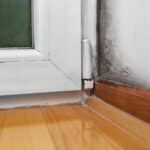Picking a retirement home can be anything but simple. There are many factors to take into account and it takes a lot of planning to result in a decision that makes you feel secure.
Adding to pressure is the sheer amount of retirees hitting the real estate market in the next few years. Between now and 2024, more people will be turning 65 in the US than at any other point in the next 20 years.
It may also be good to plan ahead while you’re still in the workforce. It’s easier to qualify for a mortgage while you’re still working, plus the extra income can be good for taking care of research and travel expenses while you property shop.
Identify Your Needs
Before you start thinking about what sort of property you want for retirement, it’s important to take a thorough look at your needs. You’ll want to consider factors such as retirement age, expected annual income, and projected living expenses.
It’s also wise to consider home installations or features that you may need as you age. For example, buying a home with multiple staircases may not be the best option for potential mobility issues.
Figure Out What Sort of Property You’re Looking For
Property type is almost as central to your decision as location. Options range from apartment to condo to single family homes to units in a retirement community.
Condos or townhouses are often a popular option because of their compromise on being somewhat spacious but also low-maintenance. Buying a condo means you don’t have to deal with the demands of maintenance and upkeep while allowing you to actually be the owner of the unit, unlike an apartment.
Have the Property Inspected
Before buying – or renting – any property, always remember to have it inspected by a licensed professional. This will also help you with long-term forecasting. Inspections will not only confirm the property’s fitness but will also determine whether you can expect any large repairs or replacements in the short term.
Starting to look early for a retirement property may be wise, especially if you’re looking to retire in the next five years or so. The number of factors you need to consider can be initially overwhelming, but if you first identify your needs and then consider what type of property you’re looking for, your steps will begin to fall in place.
Read this next: How You Can Keep Your Home in Tip Top Shape






